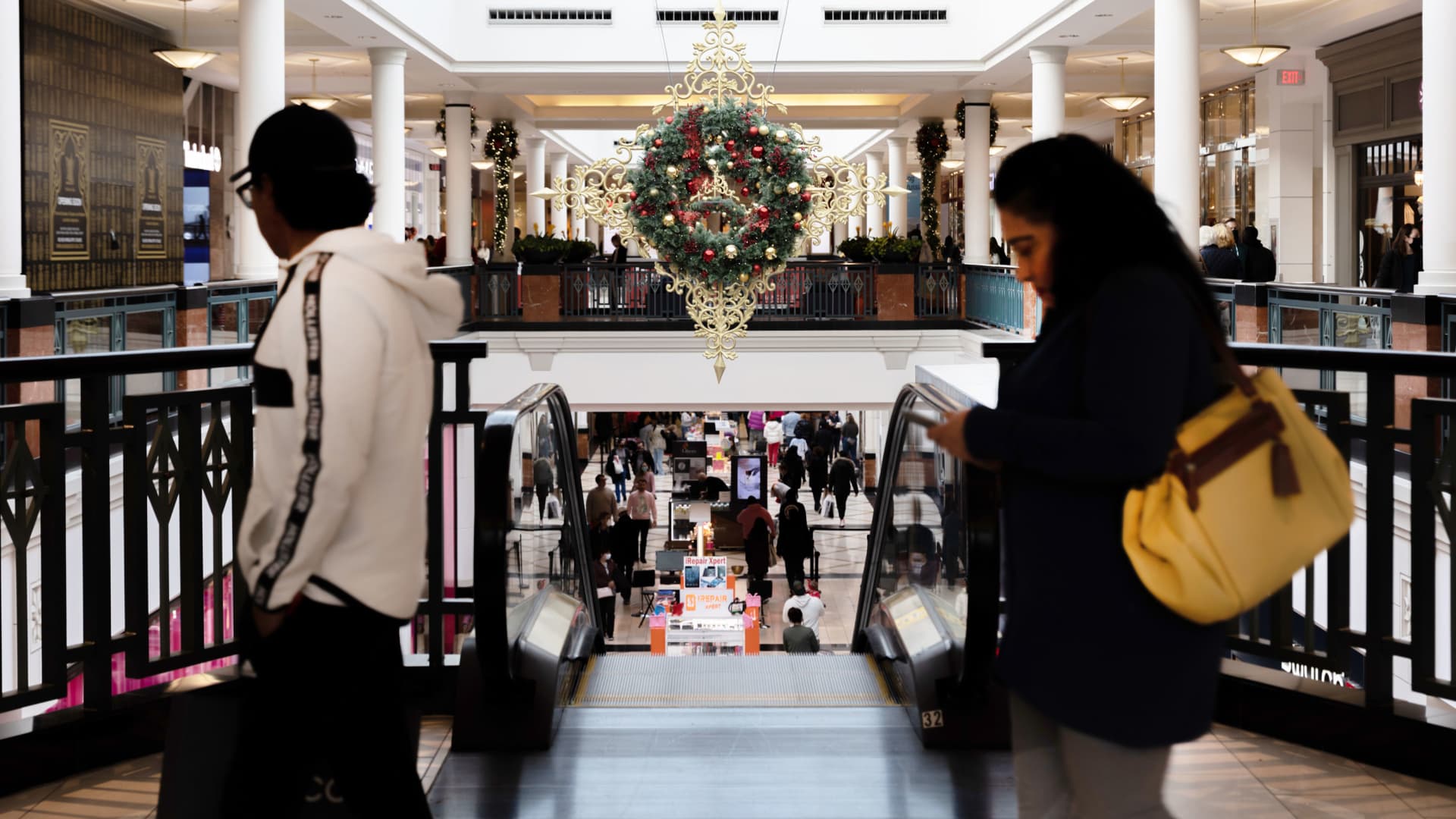Families don’t like to skimp when it comes to the holidays, under any conditions.
But with rising prices and fears of a recession, holiday shoppers are feeling less generous this season.
Many consumers are planning to make fewer purchases — and at a discount, according to a recent holiday retail report by Deloitte.
Still, households will shell out $1,455, on average, on holiday gifts, in line with last year, the report found.
More from Personal Finance:
66% of workers are worse off financially than a year ago
Consumers prioritize Netflix, Amazon Prime over groceries, gas
Nearly half of Americans make this mistake with credit cards
Even though some consumers may end up spending as much as or more than they did in 2021, that’s largely due to higher prices, other reports also show.
“Inflation is, by far, the biggest issue for households this year,” said Tim Quinlan, senior economist at Wells Fargo and author of its 2022 holiday sales report.
Household finances have taken a hit with a lower savings rate and declining real wages, which could slow holiday sales, Quinlan said in the report.
“The bottom line is, with inflation remaining a headache, dollars aren’t stretching as far, and most consumers will still be looking for bargains.”
Dollars aren’t stretching as far, and most consumers will still be looking for bargains.Tim Quinlansenior economist at Wells Fargo
A separate report by BlackFriday.com found that 70% of shoppers will be taking inflation into consideration when shopping this holiday season and even more will be on the lookout for deals.
Nearly 33% of shoppers also plan to buy fewer gifts this year, while roughly one-quarter said they would opt for cheaper versions or more practical gifts, such as gas cards, according to TransUnion’s holiday shopping survey.
“People are trying to economize and make the most of what they have,” said Cecilia Seiden, vice president of TransUnion’s retail business.
How to avoid holiday debt
“Remember to not put yourself in debt over holiday shopping,” cautioned Natalia Brown, chief client operations officer at National Debt Relief. “Debt prevents people from reaching their financial goals — like building an emergency fund, buying a home and saving for retirement.”
Holiday spending could come at a higher cost if it means tacking on additional credit card debt just as the Federal Reserve raises interest rates to slow inflation, Quinlan added.
Annual percentage rates are currently near 18%, on average, but could be closer to 19% by the end of the year, which would be an all-time high, according to Ted Rossman, a senior industry analyst at CreditCards.com.
That will leave consumers worse off heading into 2023, Quinlan said. “In many ways we view this year’s holiday shopping season as the last hurrah.”
